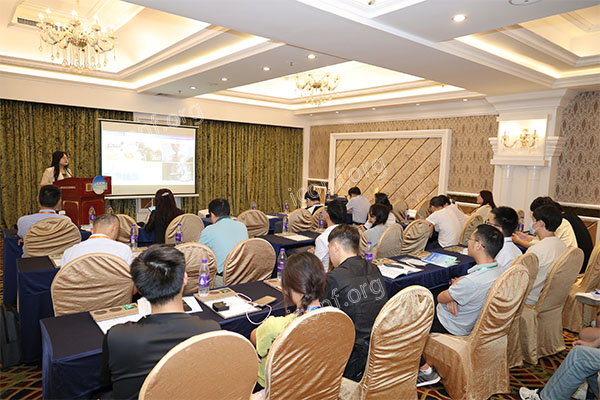International academic conferences provide a global stage for researchers, academics, and professionals to share their insights, exchange ideas, and foster collaborations. In 2025, the importance of these conferences continues to grow as researchers look to expand their influence and engage with peers worldwide. This guide delves into the key aspects of international academic conferences and offers practical tips for making the most of these events.

1. What Are International Academic Conferences?
International academic conferences are professional gatherings where researchers from various disciplines present their work, discuss advancements, and build networks. These conferences bring together diverse perspectives, fostering innovation and interdisciplinary collaboration.
Key Features:
- Hosted by universities, research institutions, and professional organizations.
- Focus on cutting-edge research and emerging trends.
- Often affiliated with reputed academic journals for publishing selected papers.
2. Benefits of Attending International Academic Conferences
Attending international academic conferences offers a range of benefits for academics and professionals:
- Knowledge Sharing: Gain insights into the latest research, methodologies, and industry trends.
- Networking: Build professional connections with peers, mentors, and potential collaborators from around the world.
- Visibility: Presenting at conferences increases your research's visibility, enhancing your reputation within your field.
- Skill Development: Improve public speaking, presentation, and critical thinking skills.
- Publication Opportunities: Many conferences provide avenues for publishing your work in high-impact journals.
3. Types of International Academic Conferences
- Disciplinary Conferences: Focus on specific fields such as engineering, medicine, or social sciences.
- Interdisciplinary Conferences: Explore topics that bridge multiple fields, encouraging innovative approaches.
- Workshops and Symposiums: Offer hands-on sessions or in-depth discussions on niche topics.
- Hybrid Events: Combine in-person and virtual participation, increasing accessibility for global attendees.
4. How to Find the Right Conference for You
With numerous conferences held annually, choosing the right one can be overwhelming. Here's how to find the best fit:
- Research Themes: Look for conferences that align with your research interests and career goals.
- Verify Reputation: Check the organizing institution, speakers, and past events to ensure credibility.
- Use Trusted Platforms: Websites like iconf.org provide curated lists of international academic conferences across disciplines.
- Seek Recommendations: Consult peers, mentors, or academic networks for suggestions.
5. How to Prepare for an International Academic Conference
To make the most of your experience, preparation is key. Here’s a step-by-step guide:
6. Top Fields for International Academic Conferences in 2025
- Technology and Innovation: Artificial intelligence, robotics, and blockchain.
- Health and Medicine: Advances in healthcare technologies, public health strategies, and pharmaceuticals.
- Environmental Studies: Climate change, renewable energy, and biodiversity conservation.
- Social Sciences: Education, psychology, and cultural studies.
- Engineering: Civil, mechanical, and electrical engineering innovations.
7. The Role of Platforms Like iconf.org
Finding and registering for international academic conferences can be simplified using platforms like iconf.org. These platforms:
- List verified and high-quality conferences.
- Provide detailed information about themes, dates, and submission deadlines.
- Offer resources for authors, including guidelines for paper submission.
8. Tips for Maximizing Your Conference Experience
- Network Strategically: Introduce yourself to peers and speakers during breaks or networking events.
- Take Notes: Keep track of important points from presentations for later reference.
- Follow Up: Stay in touch with contacts via email or LinkedIn to maintain connections.
- Explore Opportunities: Look out for workshops, poster sessions, or funding opportunities linked to the conference.
Conclusion
International academic conferences are invaluable for advancing your research, building global networks, and enhancing your academic career. As 2025 approaches, explore opportunities through trusted resources like iconf.org to find conferences tailored to your interests. With proper preparation, these events can be a stepping stone to academic and professional success.
